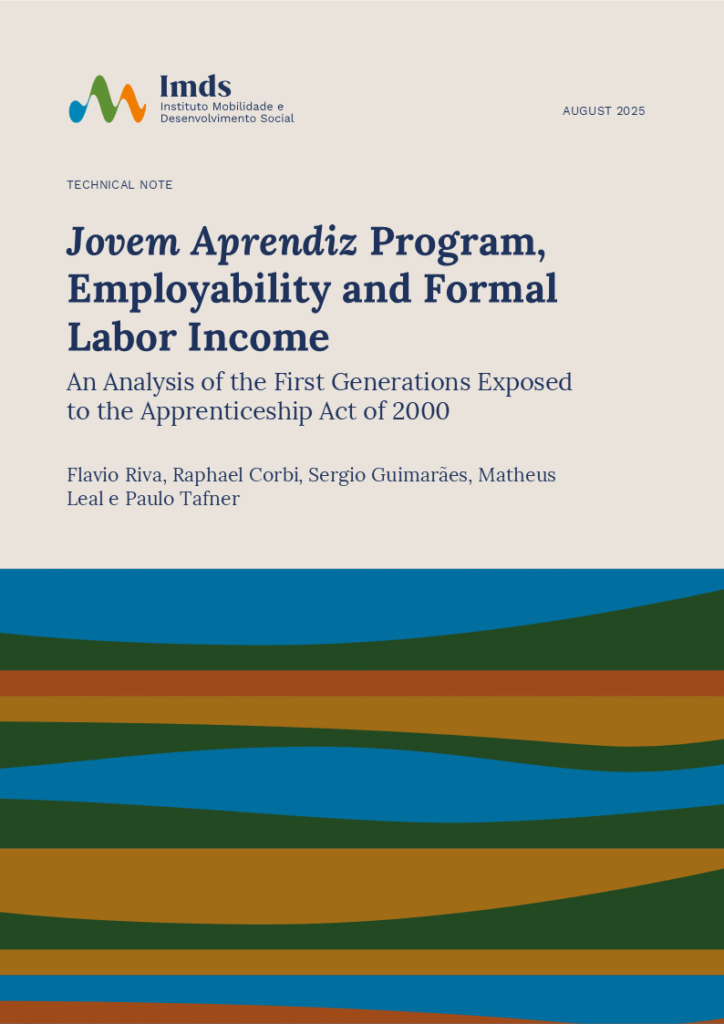Latest
Publications
Jovem Aprendiz Program, Employability and Formal Labor Income: An Analysis of the First Generations Exposed to the Apprenticeship Law of 2000
Author: Flavio Riva, Raphael Corbi, Sergio Guimarães, Matheus Leal e Paulo Tafner
Edition: 1ª
Published in: August 2025
The Brazilian Apprenticeship Law (2000) created the Jovem Aprendiz Program, establishing a specific hiring regime and minimum quotas for hiring apprentices, as well as incentives for companies to expand the admission of young people aged 15 to 17 through this type of contract. The law had marked effects on the country’s formal economy: from 2001 to 2005, the number of employed apprentices increased by more than 10 times.
This technical note explores this temporal variation and its heterogeneity across the Brazilian territory to investigate the long-term effects of the program on formal employment and labor income. We use a difference-in-differences approach and data from individuals exposed to the program in the initial years of operation to establish comparisons between: (i) the performance in the labor market of individuals born between 1985 and 1988, who began their professional careers under the new legislation, with those born between 1982 and 1984, who were not directly affected by the law (first difference); (ii) across microregions with different levels of exposure to the effects of the new regulatory framework (second difference).
The results indicate that individuals from more recent cohorts, whose trajectories were influenced by the reform in microregions with high exposure, experienced increases in the probability of formal employment and income throughout the 2010s when they were 25 to 29 years old.